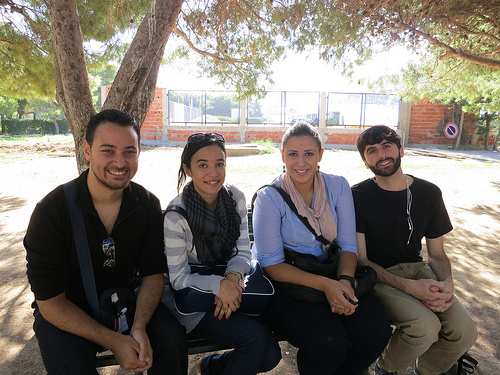
Youth has long been the buzz word connecting to the uprisings in North Africa and in the Middle East in the spring of 2011. A demographic shift, we’ve been told, combined with economic and social conditions, resulted in a new resistence culture with new strategies and goals for their respective countries. Tunisia was one such country, where the median age is 30, and multi-lingual, interconnected youth played an essential role in spearheading the pressure that would lead Ben Ali to flee the country. Now they are also an important part of safeguarding and assessing the changes that are taking place. On today’s podcast, we sit in a part in Tunis, together with 3 young people working in the field of non-profit watch dog organizations. In our 40+ minute conversation you will hear from Amir Kamergi, Khaoula Mhatli, and Yosra Mkadem, regarding the work they are doing and their individual and collective experiences and opinions regarding what is up with Tunisia today, how far we’ve come, and what to make of the future.
“It’s like shock therapy. Something happened that we never expected… it’s getting better each day, people are growing up… and that’s the great thing about our revolution… we know what we want.” – Yosra Mkadem

 At one point in
At one point in